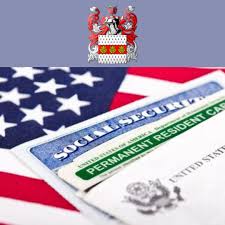
Understanding the EB1 Visa Category
The EB1 visa is a preference category for United States employment-based permanent residency. It is intended for "priority workers" which include outstanding professors and researchers, multinational executives, and those with extraordinary abilities in arts, sciences, or business. Due to its prestigious nature, choosing the right EB1 lawyer is crucial as this person will guide you through complex legal landscapes and help solidify your path to working in the U.S.
Evaluating Lawyer Credentials
When beginning your search for an EB1 lawyer, start by assessing their professional background and credentials. An ideal candidate should not only have a robust understanding of immigration law but also specific experience with EB1 visas. Check their qualifications, track record in similar cases, and reviews from previous clients. This information can often be found on their firm’s website or through online legal directories.
Specialization and Experience
Given the complexity of immigration laws surrounding the EB1 category, it's advisable to work with a lawyer who specializes in immigration law rather than a general practitioner. A specialist will have deeper insights into potential pitfalls and unique requirements of an EB1 application. Experience matters significantly; ask potential lawyers how many EB1 cases they’ve handled and inquire about their success rates.
Communication and Accessibility
Effective communication is key when dealing with any legal matter. Your chosen attorney should be accessible and able to explain complex legal jargon in understandable terms. Consider how responsive they are during your initial interactions—this often indicates how communicative they will be throughout your proceedings. Additionally, ensure that they are available via multiple communication channels like email, phone calls or even video conferences.
Fees Structure
Understanding how an EB1 lawyer charges fees is another critical factor to consider. Some lawyers charge a flat fee for handling certain types of immigration cases while others might bill by the hour. Additionally, make sure you understand what services are included in these fees to avoid any unexpected costs later on. Transparency about fees should be established from the outset to ensure there are no surprises.
Making Your Decision
After interviewing several lawyers and comparing their qualifications, accessibility, experience levels, client testimonials and fee structures—trust your instincts when making a final choice. The right lawyer for you will not only appear highly qualified but will also resonate with you on a personal level ensuring trust throughout your journey towards obtaining an EB1 visa.
Frequently Asked Questions
1. What is your experience with EB-1 visa applications?
It is crucial to understand the lawyer's experience specifically with EB-1 visas, as this category has particular criteria and complexities.
2. How many EB-1 cases have you handled, and what is your success rate?
This question helps gauge the lawyer’s expertise and effectiveness in handling EB-1 petitions, giving you insight into their practical knowledge and success in past cases.
3. Can you provide references or testimonials from previous clients who applied for an EB-1 visa?
References or testimonials can offer personal insights into the lawyer’s working style, reliability, and success in getting EB-1 visas approved.
4. What will be your strategy for my EB-1 application?
Different lawyers might take different approaches to compiling and presenting an EB-1 application; understanding their strategy will help you assess how they plan to handle your specific case.
5. How do you charge for your services, and what costs should I anticipate for my EB-1 application process?
Finding out about the fee structure (hourly rate, flat fee, etc.) and additional costs (such as filing fees) upfront can help in planning your finances throughout the application process.
6. How will we communicate throughout the process?
Knowing whether communication will be through emails, phone calls, or personal meetings, as well as the expected responsiveness, can set clear expectations for future interactions during the application process.